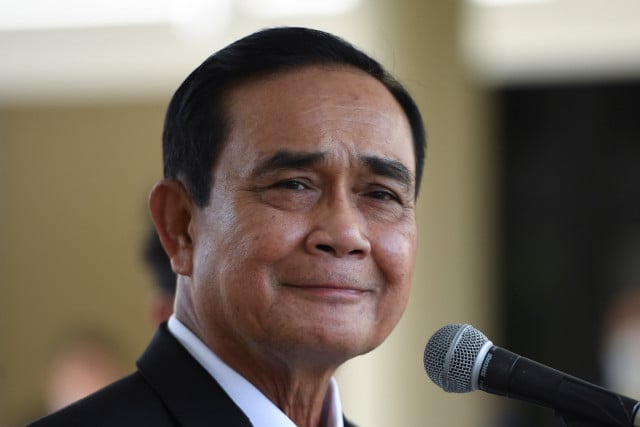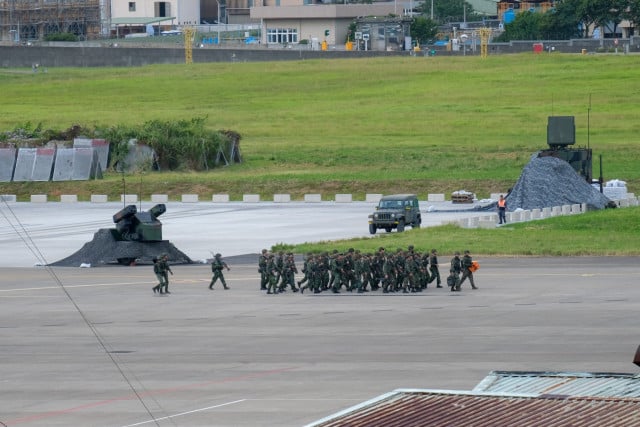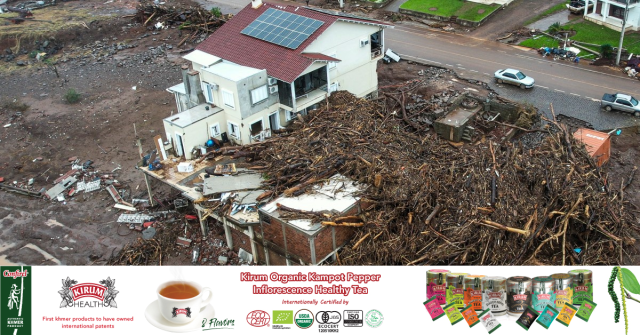“Jungle Heart of the Khmer Rouge:” the Journey of a Hilltribe Man alongside Khmer Rouge Leaders

- By Teng Yalirozy
- May 5, 2024 12:30 PM
PHNOM PENH — “If we don’t empty the cities, we don’t know how long we can stay in power.” This comment was made by a man of the Jarai community in north-eastern Cambodia who served as Pol Pot’s personal assistant/bodyguard before, during and after the Khmer Rouge regime.
This down-to-earth statement sheds light on the Khmer Rouge’s decision in April 1975 to order the population of Phnom Penh and other cities in Cambodia to leave and relocate in the countryside. The leaders, whose regime would have claimed the lives of more than 2 million people by January 1979, did not believe they could maintain power if people stayed in cities and towns.
What was the journey of this young man from Ratanakiri province called Phi Phuon who came to believe in the revolution as explained by the regime’s future leaders in the 1960s and early 1970s, and who would remain to the end loyal to Pol Pot.
Phuon’s story is related in the latest book of French historian Henri Locard who first came to Cambodia in the mid-1960s and returned to the country following the 1991 Paris Peace Agreements.
Locard’s “Jungle Heart of the Khmer Rouge: The memoirs of Phi Phuon, Pol Pot’s Jarai aide-de-camp” was published in 2023. His book unveils the role of Ratanakiri province and the journey of the Khmer communists in the northeast of Cambodia in the 1960s, their relations with the hilltribes, their seizing power in 1975 and being ousted in January 1979, then the years that followed based in Thailand in the 1980s, and later on, the Khmer Rouge Tribunal in Phnom Penh during which Phi Phuon testified.
As Locard explained during a book talk hosted by the Center for Khmer Studies in Siem Reap province, the Khmer Rouge leaders were convinced that the hilltribe lifestyle was primitive communism in which people believed in locally-produced food and helping each other, living without any contact with the outside world.
Phi Phuon was mobilized in the late 1960s by Pol Pot and other Cambodian intellectuals during the Vietnam War. The Pol Pot leadership was inspired in the late 1960s by the indigenous people who lived in a close-knit community and practiced slash-and-burn agriculture. So the Khmer Rouge leaders developed radical plans to return the country’s civilization to a blank slate, abolishing currency and opting for an agricultural society where people eat what they grow, he said.
Who was Phi Phuon, and why did he join the Khmer Rouge
The 17-year-old Phi Phuon joined the Khmer Rouge in the jungle, believing that the revolution would bring about a noble life. His father had worked for the Vietnamese during the First Indochina War of 1946-1954.
As Locard explained, Phi Phuon’s father was convinced that only the revolution could bring him respect, and recognition, and could take him to the top of society. He thought that the poor were despised by society in Cambodia.
With support from China and Prince Norodom Sihanouk’s government, the communist forces of the Viet Minh were present in Cambodia’s northeast and along the Cambodian-Vietnamese border during the 1960s. Several roads similar to the Ho Chi Minh Trail were set up in Cambodia, along which the Viet Minh could travel by bicycle, Locard said.
The Khmer Rouge would maintain their bases in the northeast through the early 1970s.
As Locard explained, Phi Phuon was the chauffeur of Pol Pot and was tasked with welcoming foreign visitors with warmth and this, even though he had no education at all. He also repaired old luxury cars so they could be used to travel around and for official guests. He also helped with food supplies.
Phuon was a trusted member of the Khmer Rouge regime but started to be perplexed when the regime started to arrest its own members. Phuon believed that his turn would come sooner or later as he had told the Khmer Rouge leaders that they had to feed the people, and Pol Pot had responded that he should mind his own business, Locard said.
And yet, Phuon remained faithful to the Khmer Rouge leaders even after the fall of the regime because he wanted to chase the Vietnamese out of the country. As a Jarai, he was against Vietnam, and so he kept fighting against Vietnam during the regime rather than for the Khmer Rouge, Locard said.
“I’m happy to have met Phi Phuon because he answered every question,” he said. “More or less, we asked about the contribution of the tribal people to the Khmer Rouge revolution. The superior organization [Angka Ler that included the hilltribe people] thought they were going to be the center of the revolution, but they were completely sidelined and never were central to the revolution.”
As for the evacuation of the cities when the Khmer Rouge seized power, Locard said, “Phi Phuon told me [the leaders thought] ‘if we don’t empty the cities, we don’t know how long we can stay in power’…That’s all. Phuon could not have invented this. They didn’t evacuate the cities for grand ideas, for the contact with the peasants, the real life being the farmer's life. They rationalized later on, they came up with excuses.”
Locard in Cambodia and intrigued by Ratanakiri province
Locard first came to Cambodia by boat in 1964, and immediately hitchhiked across the country, from Phnom Penh to Ratanakiri province. There were only two things in the province at that time, he said: minority people and the forest. There were some Vietnamese but no Khmer, he said.
When he returned to France, Locard became a civil servant and asked for a mission in Cambodia. So, he came back in 1965 and taught at the French school Lycée français René Descartes in Phnom Penh.
“There were French advisors in every ministry because French was the language of the administration and teaching,” Locard said. “However, there were very few French teachers in upper secondary schools in the whole country.”
Locard then was asked to write an article for the Minister of Education’s official publication on the first massive plantation that started in 1961. This was the start of his investigation on the plantation in Ratanakiri province.
In the 1960s, there was no destruction of the land and forests in Ratanakiri province, Locard said. This would only take place in the 1990s and early 2000s, he added.

















